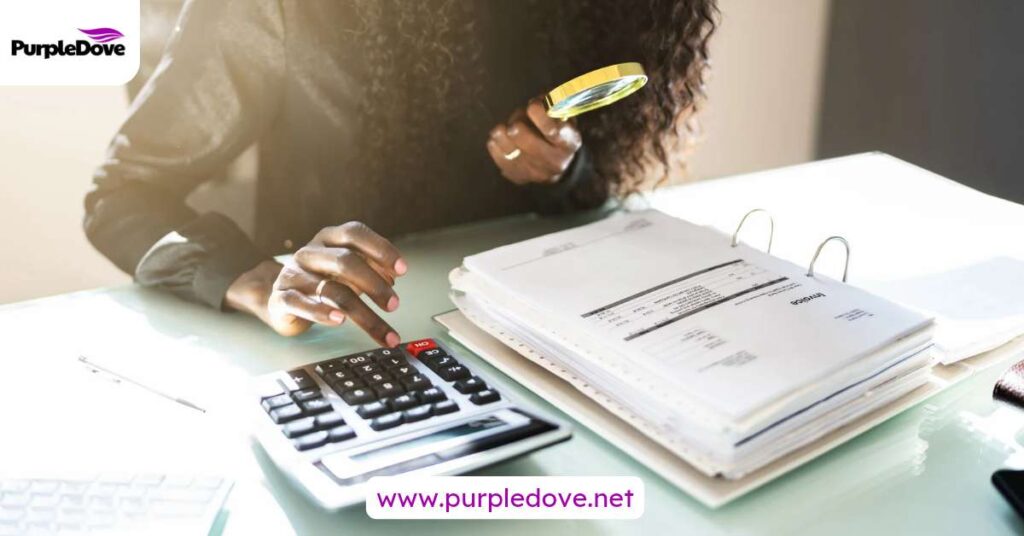Nearly 42% of UK companies reported 2023/2024 audit delays due to inadequate preparation and poor record-keeping. For many CFOs, an audit can feel like a looming deadline—but with the right plan, you can walk through it with confidence and clarity.
Below are seven practical ways to prepare for an audit, crafted as a structured playbook for finance leaders. Why aim for compliance when you can aim for calm?
1. Define the Audit Scope Early

First up: understand exactly what this audit will cover. Is it statutory, internal or compliance-based? Does it include financial statements, tax submissions, or perhaps cybersecurity processes?
- Engage with auditors from the outset to clarify documents, dates and responsibilities.
- Create a meaningful timeline with milestones, such as dates for document handover and site walkthroughs.
- Document everything. What seems obvious now can save hours later.
- When teams know what’s expected, they stay focused and deadlines are met.
This aligns closely with the effective ways to prepare for an audit—start with clarity and a shared timeline.
2. Build an Internal Audit Taskforce
Next, put together a team that can own the audit process. Don’t let it fall to just the finance department—include HR, IT, operations and compliance.
- Assign roles: who gathers invoices, who reconciles bank statements, who liaises with auditors?
- Set regular check-ins so everyone knows their responsibilities and deadlines.
- Provide a central hub, whether that’s a shared document or audit module in your ERP.
An aligned team is one of the strongest ways to prepare for an audit—they catch issues early and work together to resolve them.
3. Gather and Review Financial Documents

With the scope defined and the team assigned, it’s time to collate the paperwork.
Ensure that you compile:
- Financial statements and general ledgers
- Bank reconciliations and payment records
- Receipts, invoices and expense claims
- Tax returns and VAT filings
- Payroll records and timesheets
Using a modern system, such as PurpleDove ERP, can make this easier. Its finance modules allow quick digital access to documents, expense workflows, and audit trails—crucial in the context of proper ways to prepare for an audit.
Thorough documentation means confidence. If you know it’s in the system, you’re in control.
4. Carry Out an Internal Pre‑Audit
Before auditors arrive, run your own mock audit.
- Check journals, bank statements, and expense logs for inconsistencies.
- Simulate queries: how do you explain this large vendor payment? Can you show authorisation?
- Track every fix or adjustment. Transparency signals preparation.
These internal checks are vital ways to prepare for an audit—they ensure you catch small mistakes before auditors do.
5. Improve Controls and Compliance Procedures
While reviewing, look at your policies. Are they current? Supported by staff awareness?
Focus on these areas:
- Who approves payments, and at what thresholds?
- How do you manage procurement or vendor contracts?
- Are your systems (ERP, payroll, CRM) GDPR-compliant?
- Have staff received training on security, data handling, or approval processes?
Clear, documented processes and responsible teams form essential ways to prepare for an audit—they check boxes and reduce risk.
6. Ready Staff for Auditor Questions

The audit isn’t just about documents—it’s about trust.
- Prepare response notes for large or unusual transactions.
- Brief department heads on areas relevant to them.
- Encourage openness: no need to hide mistakes. Auditors dislike surprises less than blank stares.
This human-centred approach is one of the most overlooked ways to prepare for an audit—and it’s often what makes the difference between a smooth audit and one that drags on.
7. Use Tools to Streamline the Process
Modern finance tools can make audit prep manageable, not painful.
- PurpleDove ERP offers modules for budgeting, expense control, and audit trails.
- Central account access, approval workflows, and document search reduce friction.
- Built-in reminders ensure deadlines are never missed.
With systems aligned to best practices, you’ve already done much of the heavy lifting on ways to prepare for an audit.
Bringing It All Together
| Step | Action | Why It Matters |
| 1 | Set Scope | Ensures clarity |
| 2 | Form Taskforce | Builds shared ownership |
| 3 | Gather Docs | Creates completeness |
| 4 | Pre-Audit | Identifies gaps early |
| 5 | Improve Controls | Increases trust |
| 6 | Prepare Staff | Builds confidence |
| 7 | Use ERP Tools | Automates tedious work |
Combined, these ways to prepare for an audit turn a daunting task into a reliable process—one that leaves your team prepared, confident and ready.
Final Thoughts
An audit shouldn’t be a source of stress. With a clear plan and the right tools, CFOs can guide their teams without drama or delays. Running through the ways to prepare for an audit ahead of time offers both peace of mind and a reputation for professionalism.
Be thoughtful. Be thorough. Before your next audit, ask yourself: Have I followed the seven steps above?
